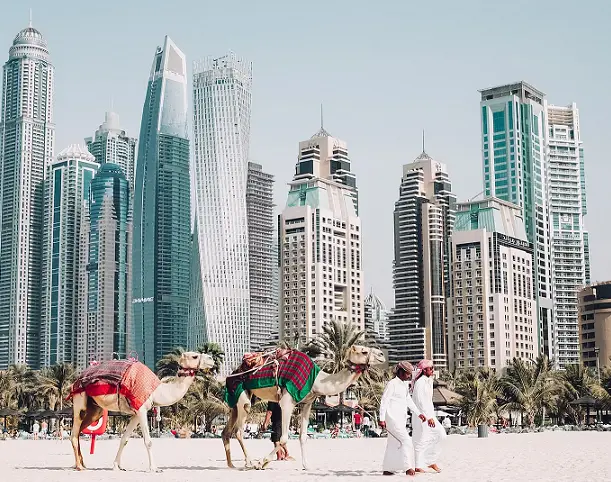On Monday, Bloomberg reported that Economy Minister for the United Arab Emirates (UAE) Abdulla bin Touq Al Marri told the news outlet that the UAE sees its membership in BRICS as an opportunity to further develop its trade portfolio, and the country is planning to commit more capital to the trade group’s New Development Bank (NDB).
Having joined the New Development Bank six years ago, Abu Dhabi is now one of the six new members which were approved to join the BRICS alliance last week. As of January of 2024, Argentina, Egypt, Ethiopia, Iran, Saudi Arabia, and the United Arab Emirates will all become full fledged members of the BRICS alliance of emerging nations.
The New Development Bank was established in 2014 by Brazil, Russia, India, China, and South Africa to supply capital for emerging nations to develop infrastructure and sustainable development projects. Having formally opened in 2015, the bank was later joined by Bangladesh, the United Arab Emirates, Egypt, and Uruguay with Saudi Arabia presently negotiating to become a member.
Without going into specific numbers, the UEA minister said, “We are actually going to push more” to expand their trade relationships and will “indeed” be injecting more capital into the bank.
Bloomberg analysts have noted that given it presently manages more than $1 trillion in sovereign wealth capital, the UAE could prove to be a “potentially deep-pocketed contributor” for the NDB. The outlet wrote, “OPEC’s third-biggest producer can give more financial muscle to the BRICS lender formed as a counterweight to the International Monetary Fund and the World Bank”
In the interview, the minister emphasized that the membership in BRICS is “huge to the UAE. Joining BRICS will add a lot to the UAE multilateral support to the world. We are focusing on our global trade; the UAE has always been a global hub,”
An analysis of global data by news outlets RBK and TASS found that the new expanded BRICS will have a combined gross domestic product (GDP) in terms of purchasing power parity of about $65 trillion. That will bring the bloc’s share of global GDP from its current level of 31.5% to 37%. By way of comparison, the G7 group of advanced economies is presently roughly 29.9%.

